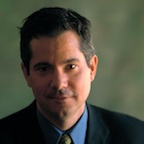- About Archives
- About SAA
- Careers
- Education
- Publications
- Advocacy
- Membership

Professional Experience: Director, Louie B. Nunn Center for Oral History, University of Kentucky Libraries, 2008–present. Manager, Digital Program, University of Alabama Libraries, 2006–2007. Director, Kentucky Oral History Commission, 2005. Senior Archivist, Kentucky Historical Society, 1998–2005
Education: PhD, 2003 and MA, 1998, Indiana University. BA, Denison University, 1992.
Professional Activities: Society of American Archivists: Oral History Section, Chair, 2011–2012, Steering Committee Member, 2008–2010. Archives Leadership Institute, 2012. Oral History Association: Executive Council, 2009–2012; Program Committee, 2004, 2006, 2008, 2009, 2010; Nominating Committee, Chair, 2007. Kentucky Oral History Commission, Advisory Board Member, 2008–Present. Midwest Archives Conference, Membership Committee, 2009–2011.
Publications: Guest Editor, Special Issue: “Oral History in the Digital Age," Oral History Review, v. 40 no. 1, Winter–Spring 2013. Author, "OHMS: Enhancing Access to Oral History Online for Free" in Oral History Review, v. 40 no. 1, Winter–Spring 2013. Project Manager, Co-Editor; Oral History in the Digital Age, edited by Doug Boyd, Steve Cohen, and Brad Rakerd, Washington, D.C.: Institute of Museum and Library Services, 2012. Author, Crawfish Bottom: Recovering a Lost Kentucky Community, University Press of Kentucky, July 2011. Author, “Horses and Hoops: New Approaches to Oral History in a Digital Environment,” in Against the Grain, v. 21 no. 4, September 2009.
Awards: Bluegrass Trust for Historic Preservation, Clay Lancaster Heritage Education Award, Crawfish Bottom: Recovering a Lost Kentucky Community, June 2012. Kentucky Associated Press Broadcasters Award, Class 1 Radio–Best Sports Feature, WUKY and the Louie B. Nunn Center for Oral History, “The Shot,” April 2010. Library Leadership & Management Association (LLAMA), Best of Show Marketing Awards, Winner, Fundraising Materials Category, Equine Oral History Project fundraising web video, July 13, 2009
***
Question posed by Nominating Committee: What are your priorities for advancing SAA’s Strategic Plan? How do we create an organization that nimbly embraces change, including changing member needs, yet is stable enough to advance the profession?
As is commonly noted in statements such as this, the archives profession is in a time of great transition, and the organization must meet and even exceed the challenges posed by rapid change. Good strategic plans provide clarity, direction and vision, and, most importantly, they translate into action in order to be successful. The four goals articulated in the strategic plan are as follows: 1)Advocacy and Archives 2)Enhance Professional Growth 3)Advancing the Field 4)Meeting Members Needs. These goals are solid, balanced and well thought out in terms of creating a framework for serving and advancing SAA in the near future. Also, these are the four areas that I would expect to find articulated in a traditional strategic plan for a professional organization. This is a good thing. However, when the vision, mission and goals of strategic planning become actionable, it is time to infuse tradition with innovation.
I would like to encourage SAA take a creative, experimental and innovative approach to achieving these goals. In an age of Kickstarter and emerging social media platforms, grassroots efforts for advocacy and awareness are having global impact. Likewise, there is tremendous opportunity in harnessing multimedia to present the importance of archives and the archival profession. There is a reason why promotional brochures never go “viral.” We need to begin to actively harness the power of online video to educate and advocate, so let’s add video recording, editing and production to the list of workshop opportunities offered. With regard to professional growth, SAA has a comprehensive list of professional growth opportunities. I would love to see SAA experiment with a MOOC approach to course offerings, providing more in-depth, online opportunities on topics such as computer programming—a professional growth opportunity that would empower archivists in transformative ways.
In addition to our traditional archival duties of appraisal, arrangement and description, preservation, and reference, professional leaders in the archives community must also be technical innovators, fundraisers, community organizers, marketers, managers, intellectual property experts, computer programmers, directors, producers, teachers, accountants and visionaries. We are all integral parts of SAA, and we must work together to lead, inspire, engage and empower our professional community for continued success.